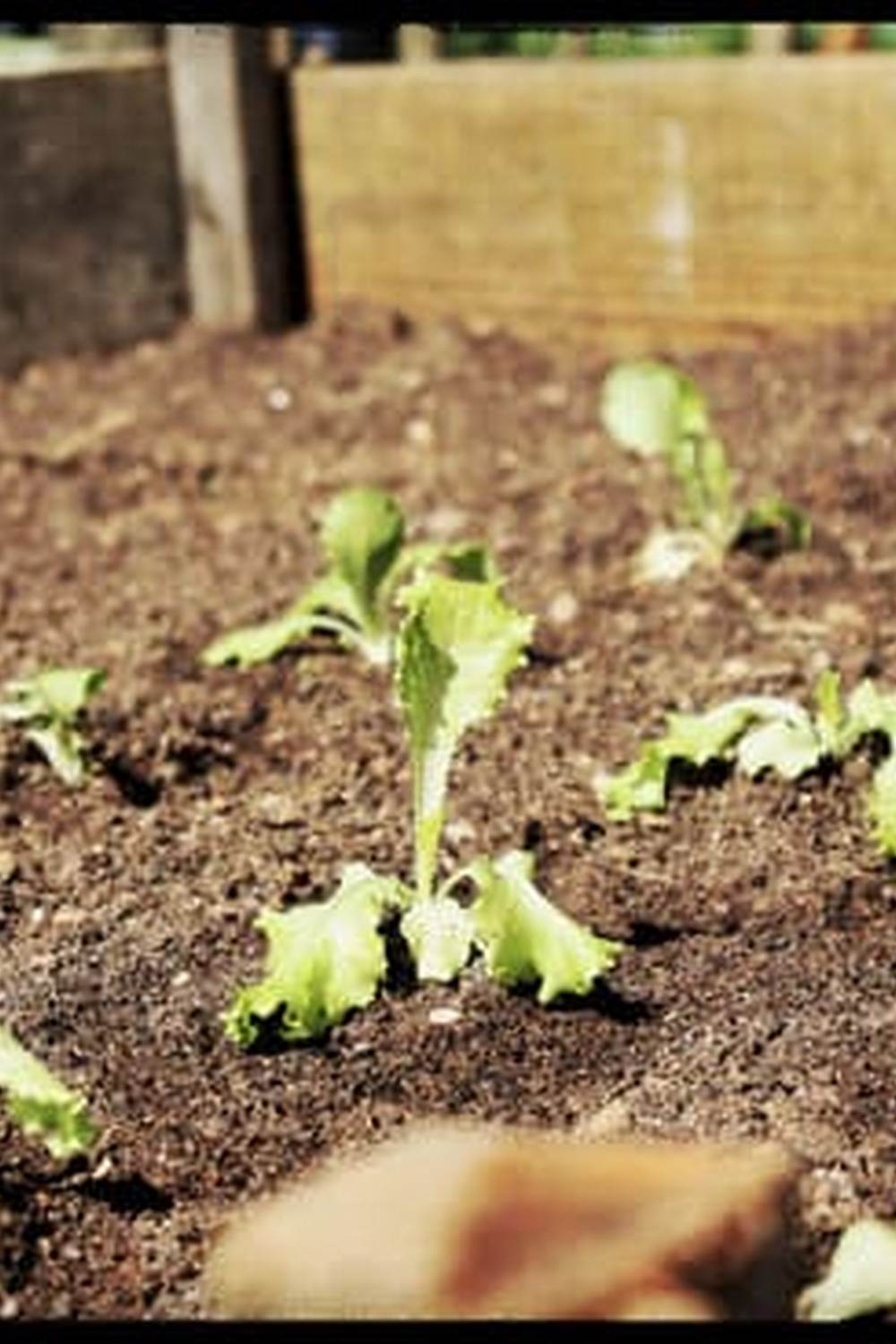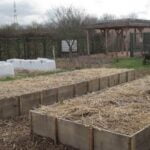When it comes to maintaining a healthy and thriving vegetable garden, dealing with pests like grubs is a common challenge for many gardeners. Grubs are the larvae of various beetle species and can cause significant damage to plant roots, leading to wilting, stunted growth, and even death of the affected plants. In this article, we will discuss the impact of grubs on vegetable gardens and explore effective methods for controlling and preventing infestations, including natural and chemical grub killers.
Grubs can be especially problematic for vegetable gardens due to their voracious appetites and ability to rapidly multiply in soil. As they feed on plant roots, they disrupt the absorption of water and nutrients, leading to widespread damage that can greatly diminish crop yields. Identifying signs of a grub infestation early on is crucial for preventing extensive harm to your vegetable garden and addressing the issue promptly.
In the following sections, we will delve into how to recognize the presence of grubs in your garden, their impact on soil health and crop production, as well as safe and effective options for eliminating them. Whether you prefer organic or chemical control methods, understanding how to deal with grubs is essential for maintaining a healthy and productive vegetable garden.
Identifying Grub Infestations
Grubs are the larvae of various beetles, such as Japanese beetles, June bugs, and European chafers. These creamy-white, C-shaped pests have a voracious appetite for plants’ roots and organic matter in the soil. When left unchecked, grub infestations can wreak havoc on vegetable gardens, causing significant harm to crops and soil health.
Signs of a Grub Infestation
There are several telltale signs that your vegetable garden may be experiencing a grub infestation. One common indicator is patches of dead or dying grass or plants, which can result from grubs feeding on the roots. Additionally, if you notice an increase in wildlife activity in your garden-such as birds, skunks, or raccoons digging up the soil-it could be a sign that they are feeding on grubs living beneath the surface.
Inspecting Your Soil
To confirm whether grubs are present in your vegetable garden, you can perform a simple soil inspection. Use a spade to dig up a small section of soil around the affected area and look for any white, C-shaped larvae underneath the surface. You may also come across other indicators of grub activity such as tunnels in the soil and root damage.
It’s essential to address a grub infestation promptly to prevent further damage to your vegetable garden. By effectively identifying the signs of a grub infestation early on, you can take proactive measures to control their population before irreparable harm occurs. Whether utilizing natural or chemical grub control methods, it’s crucial to act swiftly and decisively to protect your crops and maintain a healthy garden environment.
The Impact of Grubs on Vegetable Gardens
Grubs can wreak havoc on vegetable gardens, causing significant damage to both crops and soil health. These larvae of various types of beetles and chafers feed on the roots of plants, leading to stunted growth, wilting, and in severe cases, the death of the affected plants. In addition to directly impacting the health and productivity of vegetable crops, grubs also disrupt the balance of beneficial microorganisms in the soil, potentially leading to long-term issues for gardeners.
Identifying a grub infestation early is crucial in order to minimize the impact on your vegetable garden. Signs of a grub infestation include irregular patches of yellowing or dying grass or plants, as well as an increase in animal activity such as birds or raccoons digging up your garden in search of grubs. If left unchecked, a grub infestation can quickly spread throughout your garden and result in widespread damage.
The presence of grubs in your vegetable garden not only damages current crops but also poses a threat to future plantings. The disruption caused by these pests can lead to weakened plants that are more susceptible to disease and other pest infestations. Furthermore, as grubs feed on plant roots and organic matter in the soil, they can negatively impact soil structure and fertility over time.
To effectively address this issue, it’s essential for gardeners to implement measures for grub control that not only eliminate existing infestations but also prevent future outbreaks from occurring. Implementing effective grub control methods is crucial for maintaining healthy vegetable gardens and ensuring successful harvests. Organic options such as beneficial nematodes or botanical insecticides are worth considering when addressing a grub infestation due to their non-toxic nature and minimal impact on beneficial insects and organisms present in the soil.
- Regularly inspect plants and soil for signs of grub activity
- Introduce beneficial nematodes to naturally control grub populations
- Use botanical insecticides or neem oil as organic alternatives for grub control
Natural Grub Control Methods
Grubs are the larval stage of various beetles, including Japanese beetles and June bugs, that can wreak havoc on vegetable gardens. These white C-shaped pests feed on the roots of grass and other plants, causing significant damage to the crops and soil health in a vegetable garden. In order to effectively manage these destructive pests, it’s important for gardeners to understand and implement natural grub control methods.
Manual Removal
One method for controlling grub infestations in vegetable gardens is through manual removal. This involves physically inspecting the soil for signs of grubs and then handpicking them from the garden bed. This labor-intensive approach may not be suitable for large gardens, but it can be effective for smaller, more manageable plots.
Beneficial Nematodes
Another organic method for controlling grubs in vegetable gardens is by introducing beneficial nematodes to the soil. These microscopic organisms are natural parasites that seek out and destroy grubs without harming other beneficial insects or plants. They can be purchased from gardening supply stores and applied to the soil with water, following the instructions provided.
Neem Oil
Neem oil is an organic insecticide derived from the seeds of the neem tree. It has been found to be effective against a wide range of garden pests, including grubs. By spraying neem oil onto the affected areas of the vegetable garden, gardeners can target grubs while minimizing harm to other organisms in the ecosystem.
Implementing these natural grub control methods can help maintain a healthy balance in your vegetable garden while effectively managing grub infestations – without resorting to chemical interventions that may have adverse effects on your garden’s ecosystem and your health. Utilizing these non-toxic options ensures the long-term sustainability of your vegetable garden while protecting your crops from destructive pests like grubs.
Chemical Grub Control Options
When organic methods for controlling and preventing grub infestations in vegetable gardens no longer seem effective, some gardeners may turn to chemical grub killers as an alternative. While these products can be highly effective in eradicating grubs from the soil, it’s important to consider their potential drawbacks before using them.
Some of the common chemical grub control options available for vegetable gardens include:
- Grub killer sprays
- Granular insecticides
- Systemic pesticides
While these products can provide quick and powerful results, they also come with a set of potential drawbacks that gardeners should carefully consider before use. These drawbacks may include:
- Potential harm to beneficial insects
- Toxic effects on soil health and microbial communities
- Potential harm to humans, pets, or wildlife if not used properly
It’s essential for anyone considering the use of chemical grub killers in their vegetable garden to weigh the pros and cons of these options and make an informed decision based on their specific situation. If choosing to use chemical methods, it’s crucial to follow the manufacturer’s instructions carefully and take any necessary precautions to minimize potential risks.
Additionally, considering alternative methods for long-term prevention is recommended to maintain a healthy and balanced ecosystem in your vegetable garden.
Best Practices for Using Grub Killers in Vegetable Gardens
When it comes to dealing with a grub infestation in your vegetable garden, using a grub killer is often necessary to protect your crops. However, it’s important to use these products safely and effectively to ensure that they do not harm your plants or the environment. Here are some best practices for using grub killers in vegetable gardens.
First and foremost, always read and follow the instructions on the label of the grub killer product. Different products may have varying application rates and methods, so it’s crucial to adhere to the manufacturer’s recommendations. Additionally, be sure to wear protective gear such as gloves, goggles, and a mask when applying grub killer to minimize exposure to potentially harmful chemicals.
Before applying any grub killer for vegetable gardens, it’s essential to properly prepare the area. Remove any debris or dead plants from your garden bed and water the soil thoroughly. This will help the product penetrate the soil and reach the grubs more effectively. It’s also advisable to apply grub killers during calm weather conditions to prevent drift and ensure even distribution of the product.
Furthermore, it’s important to consider the timing of applying grub killers in vegetable gardens. Grubs are most active in late summer and early fall as they feed voraciously on grassroots before entering into pupation. Applying grub killer during this period can target these grubs at their most vulnerable stage, leading to more effective control.
Keep in mind that consistent monitoring of your garden for signs of grubs is crucial for determining when to apply treatment. By following these best practices for using grub killers in vegetable gardens, you can effectively combat grub infestations while safeguarding your precious crops and maintaining a healthy garden ecosystem.
Preventing Future Grub Infestations
Once you have successfully dealt with a grub infestation in your vegetable garden, it’s important to take steps to prevent future occurrences. There are several strategies you can implement to maintain a healthy, grub-free garden in the long term. One effective method is to cultivate a diverse range of plants in your garden. This not only helps to promote overall soil health but also reduces the risk of widespread damage if grubs do happen to reappear.
Another key strategy for preventing future grub infestations is to practice good garden hygiene. This includes regularly removing plant debris and maintaining proper irrigation and drainage systems. By keeping your garden clean and well-maintained, you can create an environment that is less hospitable to grubs and other pests. Additionally, consider adding beneficial nematodes to your garden soil. These microscopic organisms are natural predators of grubs and can help keep their population in check.
Furthermore, choosing the right grub killer for vegetable gardens is essential for preventing future infestations. When selecting a chemical option, be sure to carefully follow the manufacturer’s instructions and consider any potential drawbacks or environmental impact. Alternatively, organic and non-toxic methods can also be effective at controlling grubs without harming beneficial insects or other wildlife in the area.
| Preventive Strategy | Description |
|---|---|
| Diverse Planting | Cultivate a variety of plants to promote soil health and reduce the risk of widespread damage from grubs. |
| Garden Hygiene | Maintain a clean and well-maintained garden by removing plant debris and ensuring proper irrigation and drainage systems. |
| Beneficial Nematodes | Add natural predators of grubs to your garden soil as a way of keeping their population under control. |
Conclusion
In conclusion, dealing with grub infestations in vegetable gardens can be a challenging task, but it is not impossible. Grubs can cause significant damage to crops and soil health if left unchecked, making it essential for gardeners to be proactive in managing these pests. From natural control methods such as beneficial nematodes and organic insecticides to chemical grub killers, there are various options available for effectively addressing grub infestations in vegetable gardens.
When considering the use of chemical grub killers for vegetable gardens, it is crucial to weigh the potential drawbacks against the benefits. While chemical solutions may offer quick and effective results, they can also pose risks to the environment, beneficial insects, and even the vegetables themselves. By opting for non-toxic alternatives or incorporating natural predators like birds or beetles into your garden ecosystem, you can effectively manage grubs without harming the environment or compromising the safety of your produce.
In addition to implementing control measures, preventing future grub infestations is equally important. This may involve practicing crop rotation, maintaining proper soil health, and monitoring your garden regularly for signs of infestation.
By being proactive and following best practices for using grub killers in vegetable gardens, you can ensure the long-term health and productivity of your garden while keeping these destructive pests at bay. Overall, by staying informed and taking a holistic approach to pest management, you can effectively address grub infestations in your vegetable garden and enjoy a flourishing harvest season after season.
Frequently Asked Questions
Can You Use Grub Killer in a Vegetable Garden?
Grub killer should be used carefully in a vegetable garden, as some products may harm the vegetables. It’s important to choose a grub killer specifically labeled for use in vegetable gardens and to follow the instructions closely.
How Do I Get Rid of Grubs in My Garden?
Getting rid of grubs in the garden can be done using environmentally-friendly methods such as handpicking the grubs from the soil or using beneficial nematodes to naturally control their population. Maintaining healthy soil with proper drainage and avoiding over-fertilization can also help prevent grub infestations.
Does Sevin Kill Grubs in a Vegetable Garden?
Sevin is effective against a wide variety of pests, including grubs, but it should be used cautiously in a vegetable garden due to its potential impact on beneficial insects and bees. If considering using Sevin, it’s important to carefully read and follow the label instructions to minimize any risks.

If you’re looking to get into vegetable gardening, or are just looking for some tips on how to make your current garden better, then you’ve come to the right place! My name is Ethel and I have been gardening for years. In this blog, I’m going to share with you some of my best tips on how to create a successful vegetable garden.





